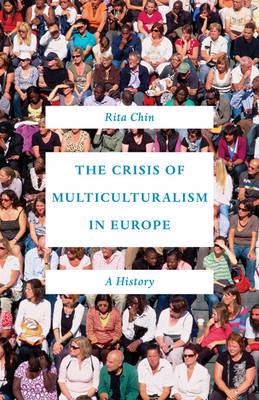The crisis of multiculturalism in Europe
a history
- ISBN: 9780691164267
- Editorial: Princeton University Press
- Fecha de la edición: 2017
- Lugar de la edición: New Jersey. Estados Unidos de Norteamérica
- Encuadernación: Cartoné
- Medidas: 23 cm
- Nº Pág.: 385
- Idiomas: Inglés

A history of modern European cultural pluralism, its current crisis, and its uncertain future
In 2010, the leaders of Germany, Britain, and France each declared that multiculturalism had failed in their countries. Over the past decade, a growing consensus in Europe has voiced similar decrees. But what do these ominous proclamations, from across the political spectrum, mean? From the influx of immigrants in the 1950s to contemporary worries about refugees and terrorism, The Crisis of Multiculturalism in Europe examines the historical development of multiculturalism on the Continent. Rita Chin argues that there were few efforts to institute state-sponsored policies of multiculturalism, and those that emerged were pronounced failures virtually from their inception. She shows that today's crisis of support for cultural pluralism isn't new but actually has its roots in the 1980s.
Chin looks at the touchstones of European multiculturalism, from the urgent need for laborers after World War II to the public furor over the publication of The Satanic Verses and the question of French girls wearing headscarves to school. While many Muslim immigrants had lived in Europe for decades, in the 1980s they came to be defined by their religion and the public's preoccupation with gender relations. Acceptance of sexual equality became the critical gauge of Muslims' compatibility with Western values. The convergence of left and right around the defense of such personal freedoms against a putatively illiberal Islam has threatened to undermine commitment to pluralism as a core ideal. Chin contends that renouncing the principles of diversity brings social costs, particularly for the left, and she considers how Europe might construct an effective political engagement with its varied population.






